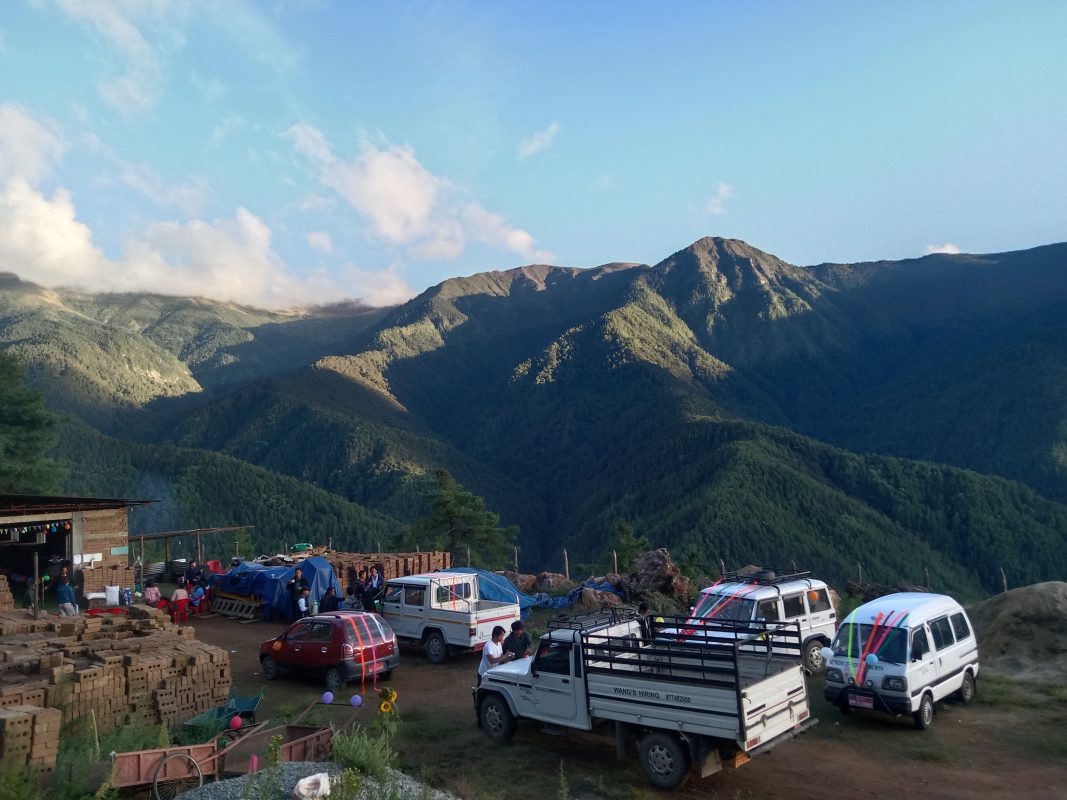Empowering Livelihood Skills for a Meaningful Life

Equipping disadvantaged PLHIV members and their children with income-generating skills is a pivotal endeavor for Lhak-Sam. This effort not only elevates their household standards but also aligns with the national sustainable development goal of eradicating unemployment and poverty. Despite crucial significance, various challenges and constraints have hindered the organization’s progress in this critical area.
A recent study conducted in 2021 among 239 PLHIV revealed alarming statistics: 41.4% were unemployed, while 36.8% had never attended school. Disturbingly, a quarter of them lived below the national living standard, and 82.8% (n=198) of participants were parents. Stigma levels surpassed the <10% benchmark of the global AIDS strategy 2010-2016, and only 67% perceived themselves as happy, a 14.8% decline from 2017’s 75% (BLSS 2017). These socioeconomic challenges profoundly impact the livelihood and overall well-being of disadvantaged PLHIV and their families.
Addressing these issues is not only a strategic move but a crucial development in responding effectively to HIV/AIDS. Drawing from the specific report findings, an evidence-based advocacy dialogue and cooperation meeting will be initiated with relevant ministries and stakeholders. Our negotiations will aim to foster meaningful collaboration and cooperation to establish tailored livelihood skills development programs for these individuals, coupled with access to micro-credit loans. This holistic approach will empower them with sustainable income-generating skills, bolster self-reliance, and elevate their overall quality of life.
Outlined below are the key programs we envision collaborating on, customized to cater to PLHIV and their children with varying literacy backgrounds:
- Functional Literacy Enhancement: Strengthen basic reading, writing, and numeracy skills to foster independent handling of daily tasks and provide access to formal and non-formal education.
- Vocational Training Initiatives: Offer vocational training focused on practical skills that transcend advanced literacy requirements. This includes training in trades such as carpentry, tailoring, cooking, baking, laundry, electrification, construction, plumbing, and other marketable skills aligned with prevailing opportunities. The training will emphasize hands-on experience, integrating visual aids and practical demonstrations to accommodate participants with limited literacy.
- Business and Entrepreneurial Skills Development: Nurture business and entrepreneurial acumen by training in fundamental business planning, financial management, marketing, and other essentials for initiating and managing small businesses. Facilitate access to micro-financing and small loans to support their endeavors.
- Collaboration with CSOs and Development Partners: Partner with Civil Society Organizations (CSOs) and Development Partners with expertise in skills development and marginalized communities. Seek funding, technical assistance, and partnership prospects to enhance program scope and impact.
- Health and Life Skills Training: Implement health and life skills training programs aimed at educating PLHIV and their children about HIV/AIDS prevention, management, and broader health safeguards.
Equipping disadvantaged PLHIV and their children with livelihood skills stands as a transformative effort, fostering self-reliance, socioeconomic stability, and an improved quality of life. Through strategic partnerships, tailored programs, and unwavering commitment, we aspire to create lasting impact in the lives of those we serve.
